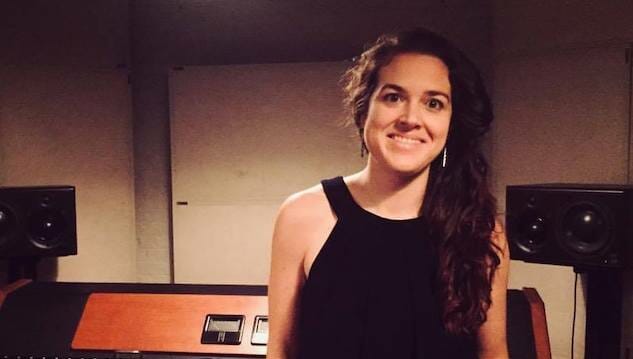Rachel Alina Finds The Myths And The Music In Her Book Locals

Plenty of recording studios in the world have achieved legendary status. Abbey Road. Electric Lady. Sound City. It all comes down to the names of the artists who have tracked their music there and the folks working behind the boards trying to make it sound perfect.
That’s likely why you haven’t heard the name of Scullville Studio. Based in Egg Harbor Township, a small municipality about 20 minutes outside of Atlantic City, New Jersey, the short-lived recording space didn’t have many big names come through its doors during its short existence, but the ones that did stop by left a mark. Levon Helm recorded some tracks there, as did Mavis Staples. Bruce Springsteen and his wife lent their talents to the debut album by sometime E Street Band member Soozie Tyrell. Otherwise, the artists that committed their talents to tape aren’t quite so familiar.
But in the eyes of some of the people that worked at Scullville, in particular Rachel Alina, a recording engineer who learned her trade at the studio, the space took on a much bigger meaning. Alina’s experiences there and in the surrounding area formed the core of her new book of poetry Locals.
Recently published by Styles Upon Styles, the record label that Alina has worked with steadily over the past decade, the collection is rich with details not only of the people that she interacted with as she came into her professional life but also little bits of technical knowhow that plop the reader in the space with her.
“Trident 80C/mixing desk,” she writes. “Have to walk/through/the lounge,/live room/vocal booth/to control room… tape machine/against/the wall.”
“I really believe in the power of myths and looking at our lives as myths and look at ourselves and the people around us as archetypes,” Alina said, speaking recently from her studio in New York about Locals. “These little gods and goddesses in the world. When I started writing these and telling this story, that was the mindset I was telling them from.”
Alina speaks about her book and most things with a sense of bemusement. Like she can’t believe her own luck that this little side hustle of poetry is working out. Like she still can’t believe all the stories she was able to hear and experiences she was able to absorb during her time at Scullville. Like she still can’t believe that she is alive to tell these tales.
In one particularly devastating poem in Locals, Alina admits that she tried to take her own life when she was in middle school after being bullied relentlessly. “Tried to die/with pain pills,” she writes, “to make it stop./Glad the doctor/saved me.”
For as heartfelt and deep as her poems run, Alina still sounds surprised that all of this came out of her. She had dabbled in the medium during her high school years but had diverted her creative energy toward making records. Somewhere along the line, she realized that it felt false to her to be making demands of the people whose art she’s shepherding into existence when she hadn’t forced herself to go through the same process. She soon signed up for a poetry workshop led by author Danniel Schoonebeek. During one class, the teacher arrived with a batch of vintage postcards, encouraging his students to use the picture on the front as inspiration and the small scale of the card to write a short, concise poem.
“There was this one that was a sketched advertisement for this seaside hotel,” Alina remembers. “When I was in high school, I was a chambermaid at this hotel on the Jersey Shore, and I just looked at this postcard and thought, ‘This is me. And I can write about anything.’”
As she focused in on her experiences in New Jersey, making records and dealing with the myriad characters that recorded at Scullville or held court at nearby bars, the memories and poems poured out in short bursts, leaving behind enough for her first book.
